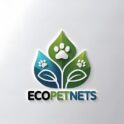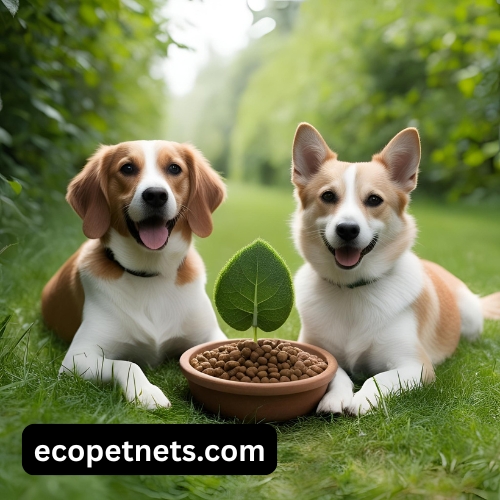
Future Trends in Sustainable Pet Products
As the global awareness of environmental issues continues to rise, the pet industry is undergoing a significant transformation. Pet owners are increasingly seeking products that are not only beneficial for their furry friends but also kind to the planet. This shift has spurred innovation and growth in the realm of sustainable pet products, a trend that is expected to accelerate in 2025 and beyond. In this comprehensive article, we explore future trends in sustainable pet products, focusing on sustainable materials, refillable and reusable packaging, advancements in pet nutrition, the integration of eco-friendly technology, and market growth data that underscores the importance and potential of this sector.
Sustainable Materials: The Foundation of Eco-Friendly Pet Products
At the core of the sustainable pet products movement lies the use of sustainable materials. Traditional pet products have often been made from plastics and synthetic fibers that contribute to environmental degradation. However, the future points towards materials that are renewable, biodegradable, and have a reduced carbon footprint.
Innovations in sustainable materials include the use of bamboo, hemp, organic cotton, and recycled plastics. Bamboo, for instance, is a fast-growing resource that requires minimal water and pesticides, making it an ideal candidate for pet beds, toys, and feeding bowls. Hemp, known for its durability and biodegradability, is gaining popularity in pet apparel and accessories. Additionally, recycled plastics are being repurposed into pet toys and grooming tools, helping to divert waste from landfills.
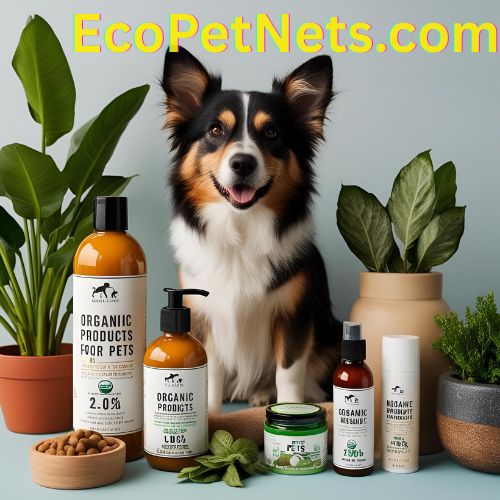
Manufacturers are also exploring bio-based polymers derived from plant materials, which can be composted after use. These materials help reduce reliance on petroleum-based plastics and lower greenhouse gas emissions. The adoption of sustainable materials not only supports environmental goals but also appeals to eco-conscious consumers who prioritize ethical purchasing decisions for their pets.
Refillable and Reusable Packaging: Reducing Waste in Pet Care
Packaging waste is a significant environmental concern, and the pet industry is no exception. Traditional single-use packaging contributes to the accumulation of plastic waste, which often ends up in oceans and landfills. To combat this, refillable and reusable packaging solutions are emerging as a key trend in sustainable pet products.
Refillable packaging allows consumers to purchase pet food, treats, grooming products, and supplements in bulk or concentrate forms and refill their existing containers at home or at designated refill stations. This approach minimizes packaging waste and reduces the demand for new plastic production. Brands are experimenting with durable containers made from glass, stainless steel, or high-quality reusable plastics that can withstand repeated use.
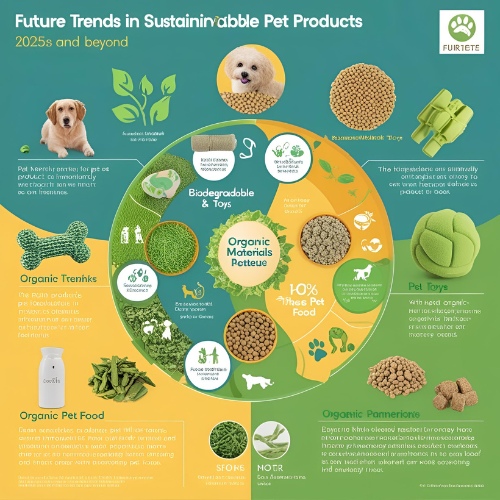
Reusable packaging also extends to pet waste bags, where biodegradable and compostable options are gaining traction. Some companies are developing dispensers designed to be refilled with biodegradable bags, emphasizing convenience and sustainability.
What is New Eco-Friendly Pet Startups to Watch
The integration of refillable and reusable packaging aligns with the circular economy model, promoting resource efficiency and waste reduction. It fosters a stronger connection between brands and consumers who are committed to minimizing their environmental impact.
Advancements in Pet Nutrition: Healthier Pets and a Healthier Planet
Pet nutrition is another domain experiencing a revolution driven by sustainability principles. Consumers are demanding pet foods that are not only nutritious but also produced with minimal environmental impact. This has led to the rise of alternative protein sources, regenerative agriculture practices, and transparent supply chains.
Alternative proteins such as insect-based meals, lab-grown meats, and plant-based ingredients offer promising solutions to reduce the ecological footprint of pet food production. Insects, for example, require significantly less land, water, and feed compared to traditional livestock and produce fewer greenhouse gases. Pet foods formulated with insect protein are gaining acceptance for their high nutritional value and sustainability benefits.
Eco-Friendly Pet Water Dispenser
Regenerative agriculture focuses on farming practices that restore soil health, increase biodiversity, and capture carbon. Pet food companies partnering with regenerative farms ensure that their ingredients contribute to environmental restoration rather than degradation.
Transparency and traceability in sourcing are also becoming critical. Brands that provide detailed information about ingredient origins, ethical farming standards, and environmental certifications tend to build stronger trust with consumers. This transparency supports informed choices that align with sustainable values.
Eco-Friendly Technology Integration: Smart and Sustainable Pet Products
The convergence of technology and sustainability is creating a new category of eco-friendly pet products, often referred to as smart eco-products. These innovations incorporate eco-conscious design with digital functionality to enhance pet care while reducing environmental impact.
Examples include smart feeders that optimize portion control to minimize food waste and energy-efficient pet grooming devices powered by rechargeable batteries. Sensors embedded in pet collars or health monitors can track activity levels and health metrics, enabling early intervention and reducing the need for veterinary resources.
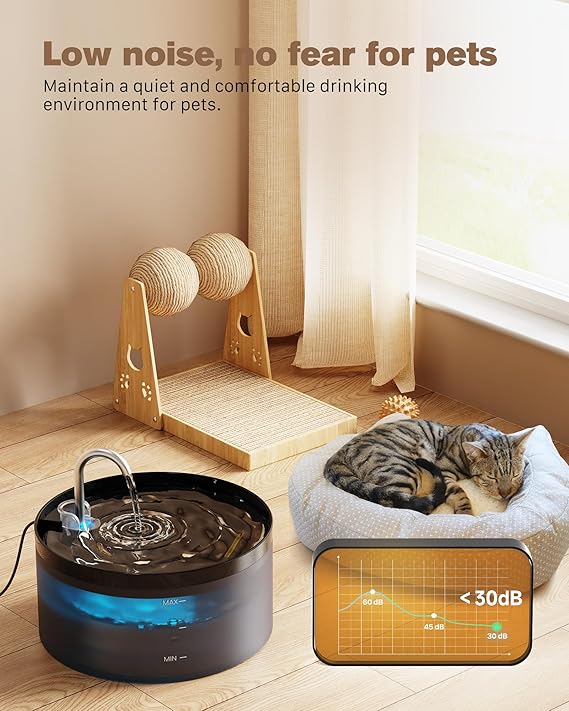
Some companies have introduced solar-powered pet accessories like heated beds and water fountains, harnessing renewable energy to operate off-grid. Additionally, apps that encourage sustainable pet ownership practices — such as reminders to refill reusable containers or alerts for eco-friendly product discounts — are fostering greater environmental awareness.
The integration of eco-friendly technology not only improves convenience for pet owners but also aligns product life cycles with sustainability goals. This trend is expected to expand as consumer demand for innovative and responsible products grows.
Market Growth Data: A Booming Sector with Promising Prospects
The sustainable pet product market is experiencing robust growth, driven by consumer demand and increased environmental consciousness. Market research indicates that the global sustainable pet care market is projected to grow at a compound annual growth rate (CAGR) of approximately 7-10% from 2025 onward.
Data from industry reports show that segments such as organic and natural pet food, biodegradable waste bags, and eco-friendly toys are leading this expansion. The refillable packaging segment is also gaining market share as brands and retailers invest in infrastructure to support it.
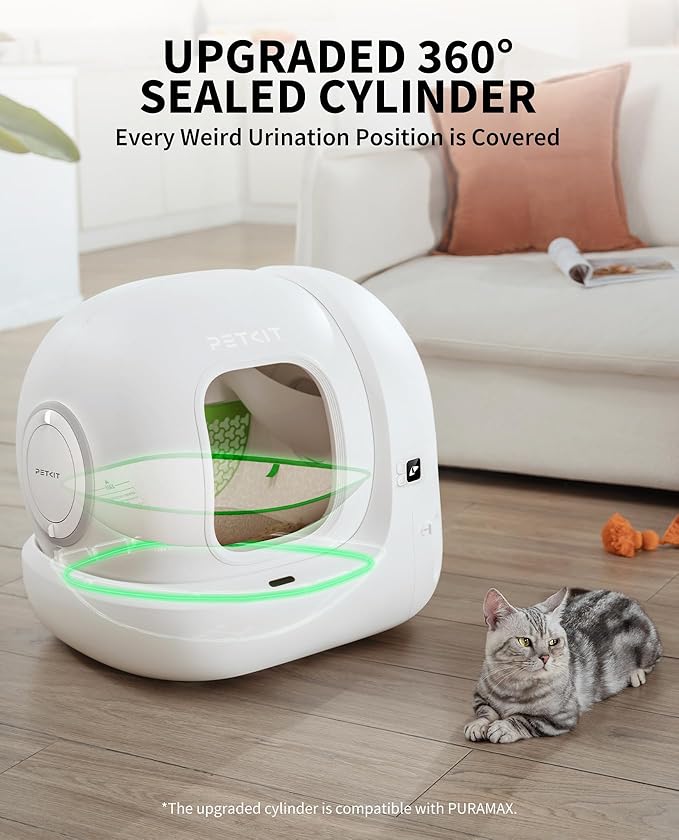
Millennials and Gen Z pet owners, who prioritize sustainability in their purchasing decisions, represent a significant portion of this market growth. Their preference for transparency, ethical sourcing, and environmentally friendly products is reshaping industry standards.
Furthermore, regulatory pressures aimed at reducing plastic waste and promoting sustainable manufacturing practices are encouraging companies to innovate and adopt greener approaches. Investments in research and development for sustainable materials and technologies are expected to accelerate, enhancing product offerings and market competitiveness.
Conclusion:
The future of sustainable pet products is bright, with promising trends shaping the industry landscape in 2025 and beyond. The adoption of sustainable materials, the rise of refillable and reusable packaging, innovations in pet nutrition, and the integration of eco-friendly technology are collectively driving a shift towards responsible pet care.
As market growth data underscores the expanding consumer base for these products, brands have a significant opportunity to lead in sustainability and innovation. Pet owners, increasingly aware of their environmental impact, are seeking products that align with their values without compromising on quality or convenience.
The pet industry’s commitment to sustainability not only benefits the planet but also enhances the health and well-being of pets, creating a harmonious future for animals and their human companions alike. By embracing these future trends, stakeholders can contribute to a more sustainable and compassionate world for pets and people.
